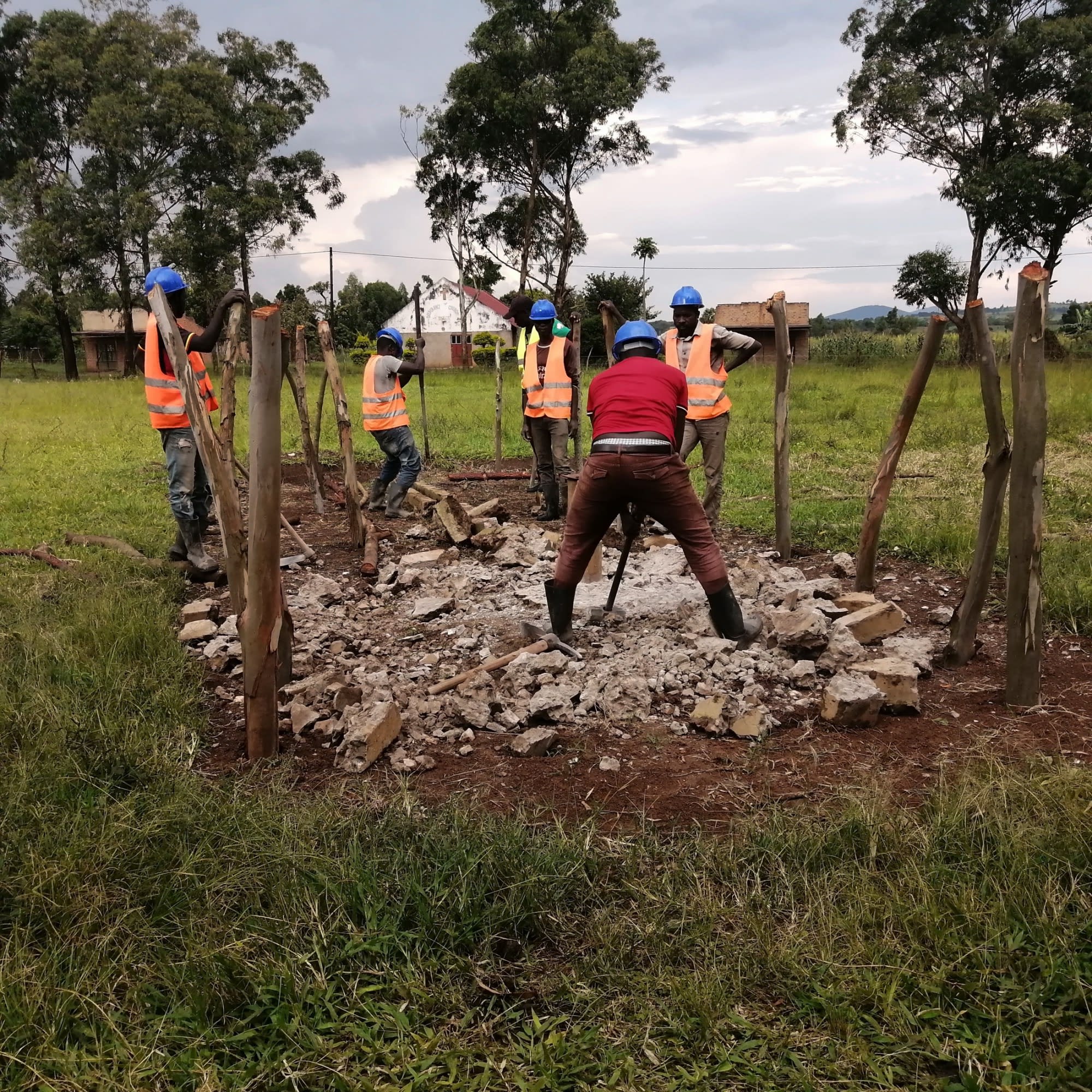The land in this area is gently sloping with undulating plains, mainly covered with food crops and sugarcane plantations.
The most common livelihood is farming, although some youth engage in bricklaying. The community hosts a weekly market which is a food basket for the whole district. Most households have trees planted after being trained on the importance of fruit trees for nutrition and other trees for environmental conservation.
Kisalizi Primary School is a community school founded through the church's support that provided the land where the school currently sits. In 1979, the government took over its management to improve the infrastructure.
The borehole at the school needing rehab serves a large population of one thousand, including the school and nearby community members. All the pump parts are worn out, leading to frequent breakdowns. The platform has cracks, and the environment is not well maintained, exposing this water point to contamination due to seepage. This project will mean children will fetch water on their school campus without interrupting their lessons during class hours.
The headteacher commented, "When the borehole has mechanical issues, the pupils have to move long distances to look for water. There are long queuing times at the water points, which affects our lessons. At times pupils are stopped from going for water, thus impacting the hygiene and sanitation practices of the school and the pupils."
The people in the community, especially women, come to the well to collect water before the student's break and lunchtimes because that's when the pupils are still attending classes. In the evening, when the children get home from school, parents send them back to the well to fetch water. Once the borehole at the school is repaired, it will function consistently for students.
Due to the number of people in the area accessing water, this rehab will help relieve some pressure from the other community water sources.
Here’s what we’re going to do about it:
Rehabilitated Well
We are going to restore water to the broken-down borehole. Since this water point is located at the center of the village and easily accessible by the majority of people, unlike the springs which are located at the far ends of the village, when this borehole is restored to its original status, it will provide the community with easy access to clean and safe water. We will remove the old pump, clear out the well, reinstall a new stainless steel pump, and build a new well pad to protect the water.
Training
Training’s main objectives are the use of latrines and observing proper hygiene practices since these goals are inherently connected to the provision of clean water. Open defecation, water storage in unclean containers, and the absence of handwashing are all possible contaminants of a household water supply. Each participating village must achieve Open Defecation Free status (defined by 1 latrine per household) before the pump installation for a shallow hand-dug well.
This social program includes the assignment of 1 Community Development Officer (CDO) to each village. The CDO encourages each household to build an ideal homestead that includes a latrine, handwashing facility, a separate structure for animals, a rubbish pit, and a drying rack for dishes.
We also implement the Community-Led Total Sanitation (CLTS) approach with each of our village partners. This aims to improve the sanitation and hygiene practices and behaviors of a village. During these sessions, village leaders naturally emerge and push the community to realize that the current practices of individual households – particularly the practice of open defecation – are unhealthy and affect the entire village. CLTS facilitates a process in which community members realize the negative consequences of their current water, sanitation, and hygiene behaviors and are inspired to take action. Group interactions are frequent motivators for individual households to build latrines, use the latrines, and demand that other households do the same.
Improved Sanitation
The aim is that all households own an improved latrine. Many households do not use a latrine but use the bush. Due to open defecation, feces are spread all over the village. This leads to waterborne diseases and contamination of groundwater and surface water. Our aim is that the community can live a healthy life free of preventable diseases. We endeavor that people will have both access to sustainable, clean water and access to sanitation at the end of our presence in the community. We have now organized families to form digging groups for latrine construction and empowered them with the tools they will need.

 Borehole Well and Hand Pump
Borehole Well and Hand Pump




























